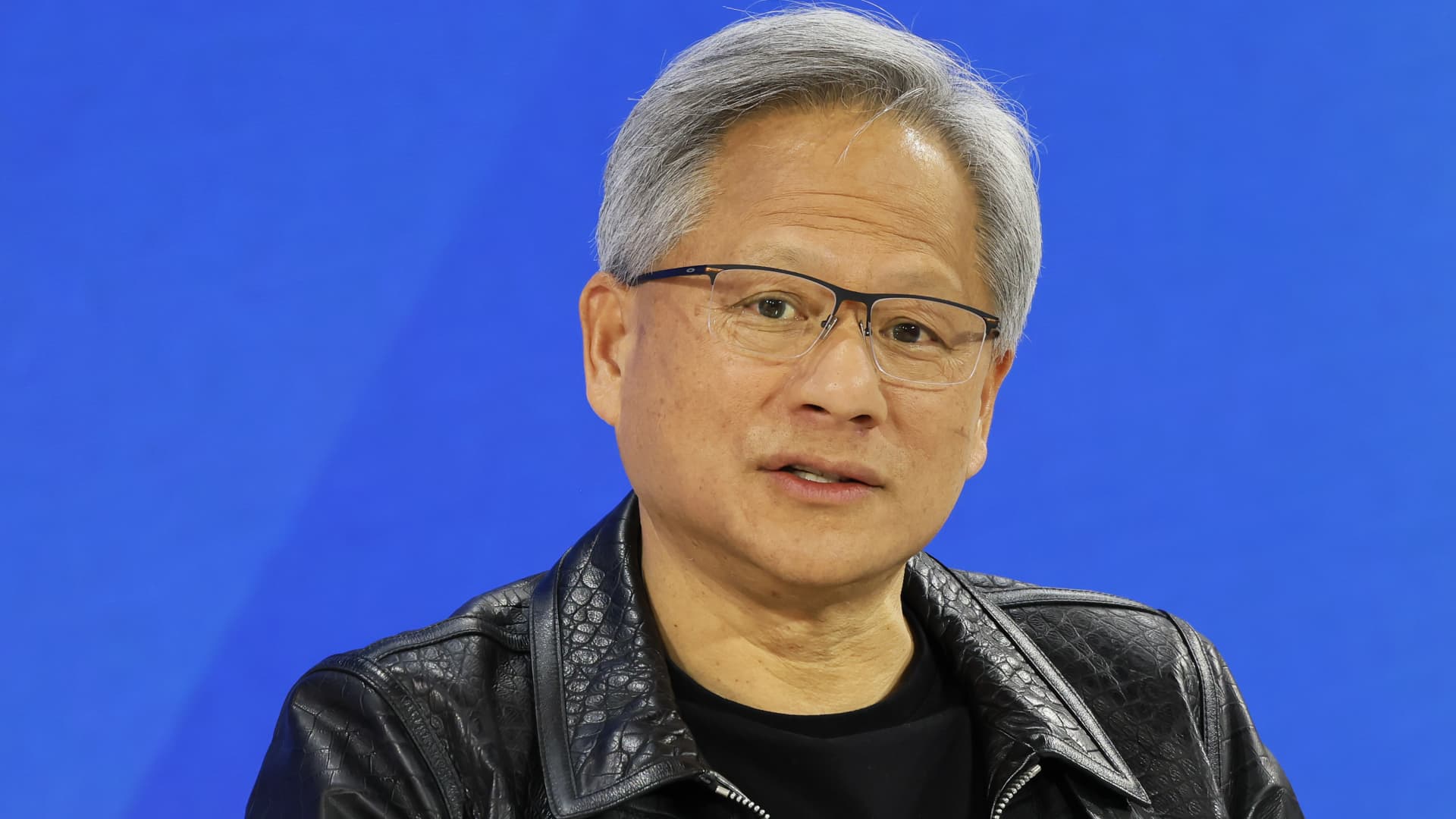- During the New York Times DealBook summit, Nvidia CEO Jensen Huang expressed his belief that artificial intelligence (AI) will reach a level of competitiveness with humans within the next five years.
- Huang highlighted the trend towards the adoption of off-the-shelf AI tools by companies, which can be customized for various applications such as chip design, software development, drug discovery, and radiology.
- Nvidia’s revenue experienced a significant boost in the company’s fiscal third quarter due to the high demand for its AI chips.
At the New York Times DealBook summit, Nvidia CEO Jensen Huang discussed the rapid advancement of artificial intelligence, stating that AI is quickly catching up to human capabilities. He emphasized the potential for AIs to perform tasks in a manner that is “fairly competitive” with human intelligence within the next five years, particularly in the realm of artificial general intelligence (AGI).
Huang pointed out the increasing utilization of pre-built AI solutions that can be tailored to specific industry requirements, spanning areas like chip design, software innovation, pharmaceutical research, and medical imaging.
Nvidia experienced a remarkable threefold increase in revenue in the recent fiscal quarter, driven by the escalating demand for their high-performance graphics processing units (GPUs) essential for training AI models and handling intensive workloads across diverse sectors including automotive, architecture, electronics, engineering, scientific exploration, and the utilization of OpenAI’s ChatGPT.
Furthermore, Huang reminisced about supplying OpenAI with “the world’s first AI supercomputer” following a conversation with Elon Musk, who expressed interest in the technology after Huang’s presentation at a conference. Reflecting on the tumultuous events at OpenAI, including changes in leadership and governance, Huang expressed optimism that the organization was stabilizing, underscoring the importance of sound corporate governance practices.
Looking ahead, Huang predicted a surge in competition within the AI landscape, leading to the proliferation of readily available AI tools that businesses can adapt to their specific needs, spanning diverse domains like chip design, software development, and healthcare applications such as drug discovery and radiology.
When prompted to assess the success of various companies in the AI sector, Huang declined to rank them, citing personal relationships and professional courtesy. He also highlighted the current limitations in achieving AGI, noting that while machine learning excels in tasks like pattern recognition and perception, it still lacks the capacity for complex multi-step reasoning, a crucial area of focus for industry players and researchers.
Huang acknowledged the swift pace of technological advancements in AI, emphasizing the ongoing efforts to enhance capabilities in multi-step reasoning, a critical milestone for the industry’s evolution. He underscored the distinction between current AI capabilities and true intelligence, emphasizing the continuous progress and evolution in the field.






